Friday March 9, 9:30am-6:15 pm: Conference
Saturday March 10, 9:30am-11:00am Optional tour of informal art at the Albany Bulb landfill March 10, 2018 9:30am-11:30 am
Note: Separate registration on Eventbrite is required for the tour. Attendance is limited to 25 people.
This is an exploration of vernacular, popular, fannish, kitsch, informal, self-taught, user-generated, and DIY productionin music, architecture, literature, the visual arts, dance, and new media– especially in relation to raced, classed, and gendered notions of value. How do the implicitly skilled “arts” rupture and reorganize themselves around hierarchies of taste? And how can critical race and feminist/queer scholarship account for “hobbyist” — that is, extra-institutional, self-organized, or improvised — modes of cultural production and circulation? If amateurism has been traditionally disavowed in modernist and avant-garde historiographies, it is at the same time persistently—even obsessively—invoked, and is hence inextricably woven into those discourses.
The symposium asks how the “high” and the “low” are porous constructions by looking at the ways that these charged terms have been deployed and dismantled across several artistic disciplines, particularly as we examine the alternative economies and systems of distribution that attend such forms of making. While it has become commonplace for “fine” artists to recruit untrained participants into their practices, it is vital to acknowledge that many non-professional forms of making grow out of necessity and survival. In addition, though “amateur” is frequently used as a shorthand for the unpracticed and/or uninteresting, this conference seeks to understand its connections to its root word amare: a complex outgrowth of critical investment, pleasure, and love.
Amateurism Across the Arts is an event hosted by the Arts Research Center at UC Berkeley, and co-sponsored in part by UC Berkeley’s Division of Arts & Humanities, the Townsend Center for the Humanities, University of California’s Humanities Research Institute, Judith Butler’s Maxine Elliot Endowed Chair Funds, the Global Urban Humanities Initiative, and the Berkeley Center for New Media. Additional support is provided by Departments of History of Art, Spanish and Portuguese, Theater, Dance, and Performance Studies, Critical Theory, and the Center for Race & Gender.
A schedule and complete list of speakers is available here.
